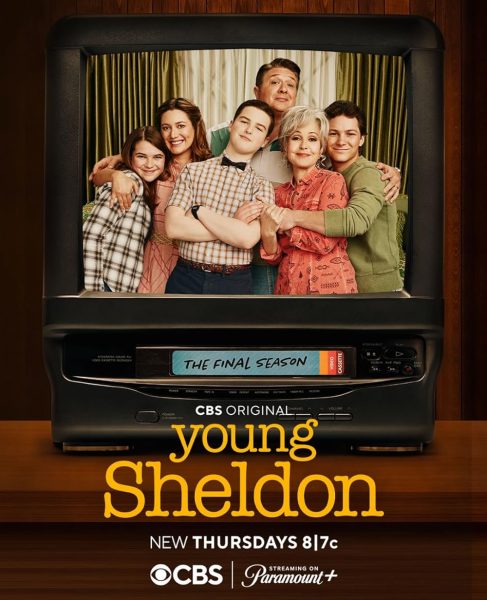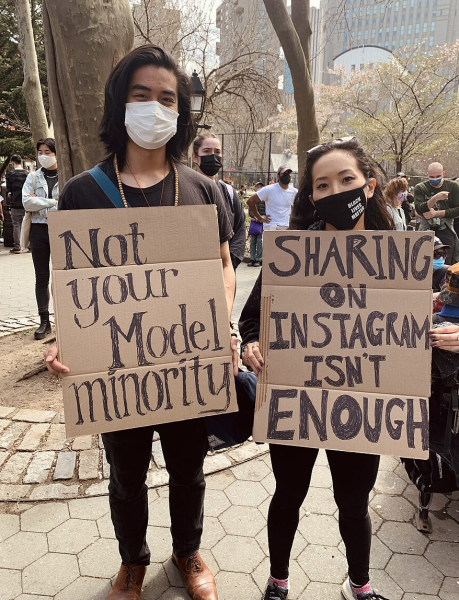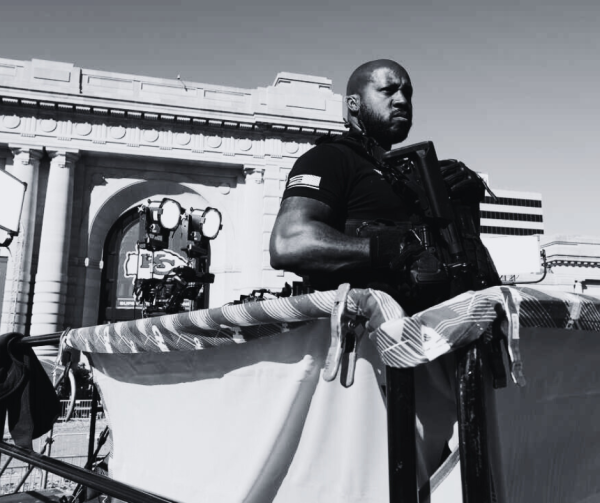Is marriage still relevant in today’s society?
What value does marriage have beyond a social contract?
May 24, 2021
Just as Topanga Lawrence asked, “have you ever fallen in love?” to Shawn Hunter and he said “five times a day,” in “Boy Meets World,” Hunter’s response reflects demographics today and contemporary viewpoints on marriage.
Perspectives about the role and value of marriage differ among the public. For example, younger adults are more likely to say that marriage is not important for men and women. A study conducted by Pew Research Center found in 1990, 58% of Americans ages 18 and older were married. In 2017, 50% of Americans ages 18 and older were married. When asked about the importance of being in a committed romantic relationship, 19% of adults younger than 30, compared with 9% of those 65 and older, say this is not important for a man. Like women, 12% of men and 14% of women said being in a committed romantic relationship is not important for a woman.
“To me, marriage is a way to share your life with a significant other that you truly care about,” said sophomore Stephanie Jose. “It can be beautiful, but I don’t think marriage is necessary to lead a fulfilling life. Society puts a lot of pressure on the ideal life being to get married and raise a family, but there are other ways of finding fulfillment in life. Plenty of people live happy lives without ever getting married, and I think it should be more normalized. I plan on getting married if I ever genuinely find someone I love and can envision myself spending my life with. But I don’t want to settle for an unhappy marriage just because of the pressure from society to get married. There are plenty of other ways in life I can be happy and lead a great life if I ever decide not to marry.”
Plenty of people live happy lives without ever getting married, and I think it should be more normalized.
— Stephanie Jose
Jose’s view regarding marriage is an option many people have adopted. The increase of Americans who have never been married compared to the divorce rate in the United States shows a correlation. The American Psychological Association reveals about 40 to 50 percent of married couples in the United States divorce. According to NCBI, “the most commonly reported major contributors to divorce were lack of commitment, infidelity and conflict/arguing. The most common ‘final straw’ reasons were infidelity, domestic violence and substance use… Divorced individuals, compared to their married counterparts, have higher levels of psychological distress, substance abuse, and depression, as well as lower levels of overall health.”
One criticism against Jose’s and others’ choice is that this perspective on marriage increases commitment issues between couples, but Americans continue to be unfaithful in relationships whether or not they have wanted to be married to their partner.
According to an article on Regain.us, a website dedicated to supporting “improving one’s relationship,” the most common reasons for cheating are emotional neglect, sexual dissatisfaction, boredom and low self-esteem. “Cheating is not considered acceptable, but males were more likely to justify cheating if sexual needs were not being met within an existing relationship, while women were more likely to justify cheating if emotional neglect was involved,” the article states. “Eighty-one percent and 86% of participants are recorded as saying there is no instance in which cheating is acceptable or justified, including more than half of all individuals who acknowledged engaging in infidelity, themselves.”
In an interview with freshman Carlo Ciliberti, Ciliberti explains his thoughts on cheating. “Infidelity is the main cause of divorce within America and is widely frowned upon in many religious creeds. Cheating in any relationship is never justifiable. Many times, a partner will find another person to create an additional relationship with they are not receiving the feelings and actions they desire within a relationship. Although one half of the relationship feels satisfied, the other party becomes, rightfully, hurt internally, and can typically be the cause of the end of the relationship. If both parties can agree on wanting to develop a second relationship, the logical solution is to mutually part ways, to avoid hurting any of the parties involved. Although having ‘open relationships’ is becoming more common in today’s age, many relationships are fragile, to begin with, and cheating can only destroy the connection.”
Some Americans may say their wedding was the happiest day of their lives, but other cultures say otherwise. Arthur Zuckerman, a writer for CompareCamp, revealed that 55% of marriages that happen across the globe today are arranged marriages, and 6.3% is the divorce rate of arranged marriages globally. Lèa Rose Emery, a writers for brides.com, says “arranged marriages often mean forced marriages; in many cases, the brides are under 15 years old, with countries like Niger and India having particularly disturbing rates of child brides. These girls are often pulled out of school and isolated, left with no choices or opportunities. So while on the one hand, the modern trend has been to grant more autonomy to those involved, it’s important to remember that in many cases it is still a veneer, cloaking abuse in the name of tradition.” Without the valid consent of two individuals, this could include both physical or emotional pressure to get married. For example, families will attempt to make LGBTQ people feel that their sexuality brings shame to their families.
In 2020, an estimated 5.6% of Americans identify as lesbian, gay, bisexual, transgender or queer in a Gallup report. During the past few years, growing support for LGBTQ rights for same-sex marriage has increased. A poll conducted in June 2020 shows that 67 percent of Americans support gay marriage compared to a poll conducted in 2012, where only 53 percent believed that gay marriage should be allowed.
Movements for same-sex marriage to be legalized worldwide continue to be addressed in countries with largely anti-gay governments and policies. Some families will take their relatives abroad without them knowing that they are to be married. When they arrive in the country their passports are taken away from them by their family and stop them from returning home. In a PSA from Counselor Human Rights, they share stories of victims who contacted the Forced Marriage Unit (FMU), like Sukhvinder’s for example.
“Sukhvinder was told that a relative was ill and was tricked into going to India. Once there, his family took his mobile phone, passport, and money. The male members of his family told him that they knew about his sexuality and that he would have to remain in India and marry a girl already chosen for him from the village. When he refused, they beat him. Sukhvinder managed to contact the British Consulate in India, who helped him return to the UK. Once home, the FMU put Sukhvinder in touch with organizations that have worked with him around issues of sexuality, depression and stress.”
Stories like Sukhvinder’s demonstrate the hardships of marriage around the world. With dangers like physical and emotional abuse, marriage is beginning to be recognized as a standard that no longer needs to be fulfilled worldwide. Unless you are marrying someone you love, marriage is more than a commitment to some. It is relinquishing your rights away for another.












